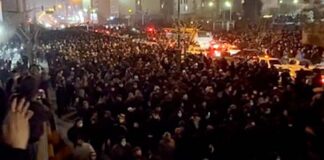As the war in Afghanistan approaches its 10th anniversary, political support for it among Western rulers is crumbling.
The Dutch are withdrawing their forces. New Zealand bluntly rejected a plea from Kevin Rudd to commit a small number of troops. In the US, dissent is emerging at the top.
The leader of the Republicans, Michael Steele, has suggested that America cannot win in Afghanistan. Even Obama’s special envoy for Afghanistan and Pakistan, Richard Holbrooke, admits: “I do not yet see a definitive turning point in either direction.”
In one of the clearest indications that the war is increasingly unwinnable, Britain is withdrawing its troops from Sangin, in the Helmand valley, where it has suffered a third of its 314 deaths.
The British government insists it is merely consolidating its forces, which will be replaced with US troops. But the move is being widely interpreted as a retreat, potentially a prelude to withdrawal.
The political fissures reflect two things: the failure of the West’s military and political strategy in Afghanistan, and the growth of mass opposition to the war, which has occurred despite the decline of the anti-war movement.
Surge increases opposition
US president Barack Obama last year declared that a “surge” of troops would shift the situation, allowing the US and its allies to make population centres safe, begin rebuilding projects and to train Afghan soldiers and police to take responsibility for security.
He sent 30,000 soldiers last year, boosting the West’s army to 140,000, with another 10,000 scheduled to arrive soon.
The move has failed, with the Afghanistan Rights Monitor (ARM), an Afghan human-rights group, reporting that “the insurgency has become more resilient, multi-structured and deadly”. More than 350 US and NATO troops have been killed so far this year, compared with 520 throughout 2009. More than 30 soldiers were killed in the first 12 days of July alone.
The US says it wants to hand over to the Afghan army as soon as the Taliban have been cleared from areas. But in June, Time magazine reported: “Nine out of 10 Afghan enlisted recruits can’t read a rifle instruction manual or drive a car… Commanders routinely steal their enlisted men’s salaries. Soldiers sell off their own American-supplied boots, blankets and guns… Recruits tend to go AWOL after their first leave.”
This is not because of the nature of Afghan people—it is because of the fracturing of people’s lives and livelihoods. ARM calculates that more than 1000 civilians were killed and 1500 wounded in the first six months of 2010. Another NGO, Integrity Watch Afghanistan, reports that civilians paid around $1 billion in bribes last year, with corruption doubling since 2007.
It is the failure of his counter-insurgency strategy that explains the intemperate interview given by General Stanley McChrystal to Rolling Stone, in which he attacked senior Obama officials and which led to his sacking by Obama and his replacement by General David Petraeus.
One of Petraeus’s first acts was to relax the military’s terms of engagement—which in plain terms means soldiers can shoot more freely even though they complain that they cannot tell the Taliban apart from the rest of the population. This will mean more civilian deaths and an even greater rejection of Western occupation by a war-weary population.
But Petraeus has not overturned one of McChrystal’s last decisions, to postpone the attack on Kandahar, a city of 800,000 people, from July to September.
Kandahar is the main base for both President Hamid Karzai and the Taliban. An offensive would destroy Karzai’s power, enrage world opinion, and cause riots across Afghanistan and uprisings in parts of Pakistan. Petraeus may be forced to abandon plans altogether—a clear defeat for the US.
Meanwhile, anti-war sentiment is growing unchecked. In Britain, nearly three-quarters of voters regard the war as “unwinnable”.
In the US, 52 per cent say the war is “not worth it”. In Australia, despite Labor and the Liberals being solidly behind the war, 61 per cent want troops withdrawn.
Western forces are in disarray. Now is the time to raise the demand that the troops should get out and the billions wasted on war should go instead to help the Afghani people rebuild their country.
Julia Gillard has echoed John Howard’s lies about “fighting terrorism” and committed Australia to continued involvement in Afghanistan. A left protest vote to the Greens, who have called for the troops to get out, will remind Julia Gillard and Tony Abbott that they cannot ignore public opinion.
Shaking the confidence of Labor in their unpopular policies will spur on the campaign to end the slaughter in Afghanistan.
By David Glanz





